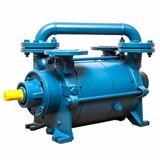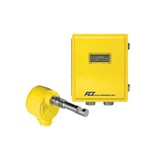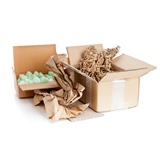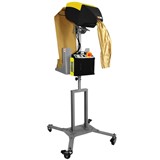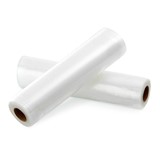Discover Form Fill Seal machine prices, types, and compliance tips for Australian businesses. Make smart packaging equipment purchases today
Key takeaways
- Prices: Form Fill Seal machines in Australia range from $5,000 for entry-level vertical units to over $100,000 for fully automated horizontal systems with advanced features.
- Vertical FFS: Ideal for powders, granules, and liquids, widely used in food, pharmaceutical, and nutraceutical sectors.
- Horizontal FFS: Best suited for pre-formed pouches, larger or irregular-shaped products common in medical and specialty food packaging.
- Packaging materials: Compatibility with films like PE, BOPP, nylon laminates, and compostable options is crucial for seal quality, product protection, and sustainability.
- Maintenance: Annual running costs usually range from $1,500 to $5,000, excluding consumables.
- Lead times: Custom or highly automated machines can take 16 to 20 weeks; local support reduces downtime.
- Compliance: Machines must meet TGA, HACCP, and AS/NZS standards for food and medical packaging.
- Financing: Equipment loans and leases start around $500 per month, depending on machine value.
- Industries: Key sectors using FFS machines include packaged foods, nutraceuticals, pet food, agriculture, and medical devices.
Introduction
Whether you're packaging powdered supplements, snack foods, or sterile medical supplies, a Form Fill Seal (FFS) machine can offer an efficient, hygienic, and cost-effective solution for your production line. This guide is tailored for Australian businesses looking to invest in an FFS machine, helping you navigate the different types, costs, compliance requirements, and ongoing maintenance so you can make a confident, informed decision.
Types of Form Fill Seal Machines
Understanding the right type of FFS machine for your product is crucial.
1. Vertical Form Fill Seal (VFFS) Machines
Common in food, agriculture, and pharmaceutical industries.
Suitable for:
- Granules (e.g. sugar, rice, fertiliser)
- Powders (e.g. protein powder, baby formula)
- Liquids (with piston fillers)
Key features:
- High throughput (up to 80+ packs per minute)
- Small factory footprint
- Versatile pouch sizes and styles
2. Horizontal Form Fill Seal (HFFS) Machines
Ideal for pouches, trays, and larger items with precise orientation.
Suitable for:
- Wet wipes, ready meals, medical kits
- Flow-wrap for snack bars or bakery items
Key features:
- Better for presentation and shelf appeal
- Offers 3-side seal and 4-side seal pouches
- More complex changeovers between products
3. Sachet and Stick Pack Machines
Best for single-serve products and pharmaceutical applications.
Suitable for:
- Liquid gels, nutraceutical powders
- Oral rehydration salts, sample-size products
Pricing Overview
Form Fill Seal (FFS) machines in Australia come in a wide range of configurations and capabilities, which directly influence their price. Most Australian buyers can expect to pay between $5,000 and $100,000, depending on the level of automation, build quality, packaging type, and throughput requirements.
Here’s a breakdown of typical pricing expectations across different machine types:
- Entry-level vertical FFS machines start at around $5,000–$15,000. These machines are usually semi-automatic, compact, and suitable for small businesses or startups packaging dry goods like powders or granules.
- Mid-range vertical FFS machines—capable of higher speeds, larger bag sizes, and more durable construction—generally cost between $20,000 and $50,000. This category is popular in the food, agriculture, and nutraceutical industries.
- Horizontal FFS machines or fully-automated systems with advanced control features, integrated fillers, and high output rates can range from $60,000 to $100,000+. These are more suitable for larger-scale operations with higher volume demands and complex packaging formats like pre-formed pouches or medical kits.
- Sachet and stick pack machines, often used in pharmaceutical and cosmetic sectors, typically fall in the $10,000 to $70,000 range depending on the number of lanes, film type, and dosing system.
Additional cost considerations:
- Installation and commissioning can add another $3,000–$10,000, especially for large or custom-built systems.
- Packaging line integration, such as automatic weighers, date coders, or conveyors, may increase the total investment by $5,000–$20,000.
- Spare format parts for multiple bag styles or sizes are usually priced between $2,000–$7,000.
Operation and Workflow
FFS machines operate by forming a pouch from a film roll, filling it with product, and sealing it—all in a single automated process.
Key steps:
- Film unwinding: From a roll (heat-sealable materials like PET, PE, or BOPP)
- Pouch forming: Around a forming collar or mould
- Filling: Via auger, volumetric, piston, or combination weighers
- Sealing: Heated jaws, ultrasonic, or impulse sealing
- Cutting and discharge
Automation reduces human error, increases hygiene, and boosts output efficiency.
Maintenance and Running Costs
Ongoing maintenance is essential for maximising machine uptime and lifespan.
Typical annual costs:
- General maintenance: $1,500–$5,000
- Parts replacement (e.g. seal jaws, belts, sensors): $500–$3,000/year
- Technician call-out (if not under warranty): $200–$400/hour
Preventive maintenance tips:
- Clean seal jaws daily
- Lubricate mechanical parts weekly
- Replace air filters and inspect pneumatic systems monthly
- Maintain film alignment and tension
Most Australian distributors offer service contracts or preventive maintenance packages to reduce long-term costs.
Spare Parts and Availability
Ensure suppliers have spare parts stocked in Australia or short lead times for:
- Heat seal jaws
- Film rollers
- Cutters and blades
- Pneumatic actuators
- Electrical sensors and PLC components
Look for brands that provide 3–5 year spare parts support to future-proof your investment.
Financing options
Form Fill Seal machines are a significant capital investment, especially for small and mid-sized Australian businesses. Fortunately, flexible equipment finance options can help spread the cost over time while preserving your working capital.
Here are the main finance options available:
- Equipment loans – A popular choice where your business owns the machine from day one, and the asset serves as security for the loan. Terms typically range from 2 to 7 years.
- Finance leases – Ideal for companies looking to upgrade equipment regularly. The lender owns the asset, and you lease it for an agreed term with potential to purchase at the end.
- Chattel mortgages – A tax-effective solution where your business claims GST and depreciation. Suitable for businesses with stable cash flow and seeking ownership from the outset.
- Operating leases or rentals – Lower upfront cost options that suit short-term needs or equipment trials. These offer flexibility but typically don’t result in ownership.
Key benefits of financing your Form Fill Seal machine:
- Preserve cash flow – Spread costs over predictable monthly payments.
- Accelerate ROI – Start production and earn revenue before the asset is paid off.
- Tax advantages – Potential to claim GST and depreciation (check with your accountant).
- Access better equipment – Finance enables you to invest in more efficient, higher-spec machinery than you could afford upfront.
Ready to finance your Form Fill Seal machine? EasyAsset offers tailored equipment finance solutions for Australian businesses, with fast approvals and flexible terms. Whether you're upgrading your packaging line or investing in your first automated system, EasyAsset can help you get there faster.
Warranty and Support
Reputable suppliers in Australia offer:
- 12 to 36-month warranties (parts and labour)
- Onsite commissioning and operator training
- 24/7 technical support and remote diagnostics
- Access to local service engineers for critical breakdowns
Clarify what's covered under warranty—seal jaw heating elements and wear items are often excluded.
Compliance and Certification in Australia
FFS machines used in food, medical, or chemical packaging must meet stringent safety and compliance standards.
Common standards:
- TGA compliance (for packaging medical devices, nutraceuticals)
- HACCP and GMP (for food-grade manufacturing)
- AS/NZS 4024 – Australian safety standards for machinery
- ISO 9001 – Quality assurance in packaging processes
- Electrical compliance with AS/NZS 3000
Ensure machines come with documentation for validation, calibration, and material traceability.
Packaging materials compatibility and film types
Choosing the right packaging materials is critical when purchasing a Form Fill Seal machine in Australia. FFS machines are designed to work with various film types, including polyethylene (PE), biaxially oriented polypropylene (BOPP), nylon laminates, and increasingly, biodegradable or compostable films.
- Material compatibility: Ensure your machine supports the specific film thickness and sealant layers you require for your product’s shelf life and protection.
- Sealing quality: Different films require precise temperature and sealing settings—FFS machines with advanced controls provide consistent, strong seals.
- Sustainability: Australian consumers and regulators are driving demand for eco-friendly packaging. Machines compatible with compostable films help future-proof your investment.
- Cost impact: Film choice affects both machine wear and packaging costs. Discuss material specs with suppliers to optimise efficiency and cost-effectiveness.
Understanding these factors helps you select a machine that maximises packaging quality, compliance, and customer appeal.
Common Buyer Questions
1. What type of packaging material works with FFS machines?
FFS machines support a wide range of materials:
- Polyethylene (PE), Polypropylene (PP), and BOPP films
- Laminates like PET/PE, Nylon/PE for barrier protection
- Compostable and recyclable films (ensure machine compatibility)
2. Can one machine handle different product sizes?
Yes, with:
- Interchangeable forming sets
- Adjustable filling volumes
- Programmable logic controllers (PLCs) with recipe memory
Expect added costs for format change parts.
3. What utilities are required?
Most machines require:
- Electricity: 240V or 415V, 3-phase
- Compressed air: 6–8 bar for pneumatic actuators
- Vacuum (optional): For certain pouch applications
4. Can I integrate the machine with other automation?
Yes, most models integrate with:
- Weighers, conveyors, checkweighers
- Metal detectors and X-ray machines
- Labellers, date coders, palletising robots
Choose modular systems for better future scalability.
5. Are local Australian suppliers better than importing directly?
Yes, primarily for:
- Faster service response
- Better after-sales support
- Reduced lead times on spare parts
- Local compliance knowledge
Direct imports may save upfront cost but risk downtime and support delays.
Final thoughts
Choosing the right Form Fill Seal machine is a strategic investment that can streamline your packaging operations, reduce waste, and improve product presentation. Be sure to assess your production needs, compliance requirements, and available support from Australian suppliers before committing. With a clear understanding of pricing, features, and long-term operating costs, you can secure a solution that delivers value for years to come.


-160x160-state_article-rel-cat.png)


-160x160-state_article-rel-cat.png)


